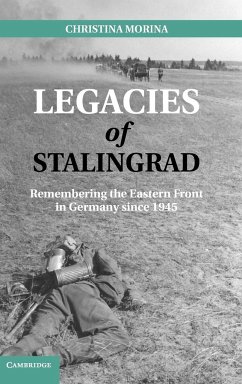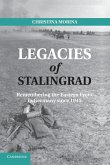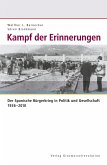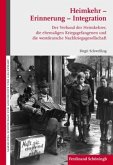Christina Morina's book examines the history of the Eastern Front war and its impact on German politics and society throughout the postwar period. She argues that the memory of the Eastern Front war was one of the most crucial and contested themes in each part of the divided Germany. Although the Holocaust gained the most prominent position in West German memory, official memory in East Germany centered on the war against the USSR. The book analyzes the ways in which these memories emerged in postwar German political culture during and after the Cold War, and how views of these events played a role in contemporary political debates. The analysis pays close attention to the biographies of the protagonists both during the war and after, drawing distinctions between the accepted, public memory of events and individual encounters with the war. This book examines the history of the Eastern Front war and its impact on German politics and society throughout the postwar period. Christina Morina argues that the memory of the Eastern Front war was one of the most crucial and contested themes in each part of the divided Germany.
Hinweis: Dieser Artikel kann nur an eine deutsche Lieferadresse ausgeliefert werden.
Hinweis: Dieser Artikel kann nur an eine deutsche Lieferadresse ausgeliefert werden.
"All too often, scholars of postwar Germany confuse the part for the whole by generalizing on the basis of its Western half. But as Christina Morina shows in her sensitively written book, it is impossible to understand how postwar Germans selectively remembered the war and their many victims without accounting for the asymmetry and interaction of rival eastern and western memory regimes. Legacies of Stalingrad is a major achievement of research and reconceptualization that historians of contemporary Europe cannot afford to miss." - A. Dirk Moses, author of German Intellectuals and the Nazi Past (Cambridge 2007)








